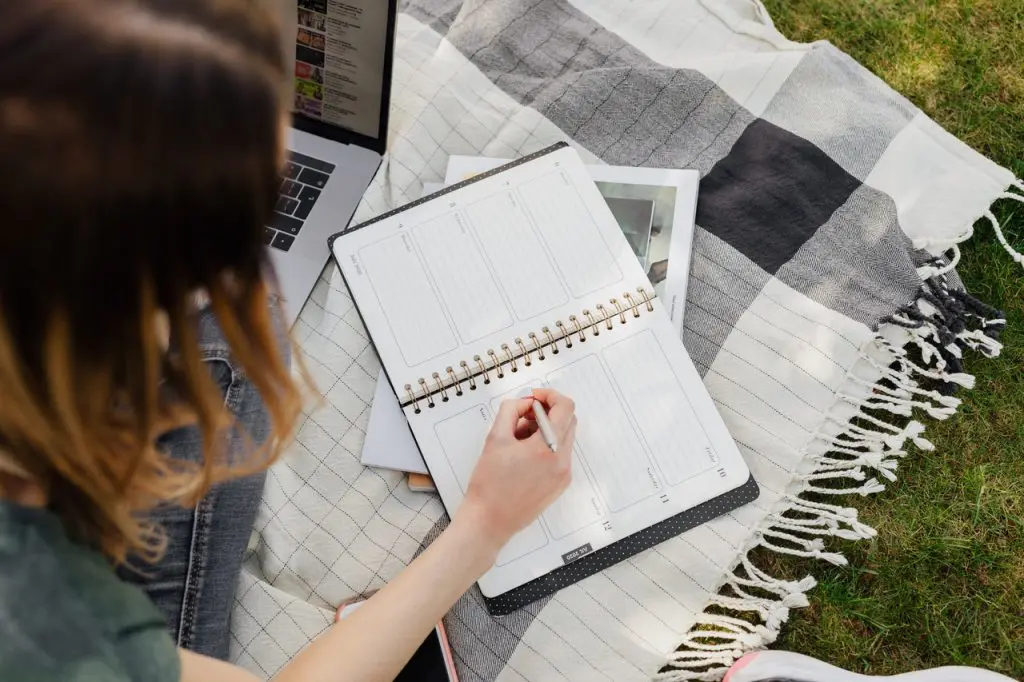It’s useful to be able to study for long hours, especially in the dreaded cram sessions before exams, or when a vital test is coming up. But other than learning through experience, how does one learn how to study for long hours without getting tired or failing to comprehend the subject matter?
This blog is here to help you study for long hours, stay focused, use your time efficiently, and absorb all the information you need to learn. Let’s get started.
When Should You Study for Long Hours?
Firstly, there really is a right and wrong time to study for extended hours. You should avoid pulling an all-nighter before an important exam unless it is absolutely necessary.
Sleep is important for cognitive function, so it’s best to plan your long study sessions either during the day, or during nights you can afford to lose — not before an important event the next day.
Furthermore, studies show that it’s actually more efficient to study for brief periods of time over many days as opposed to one long session without further review. For instance, fifteen minutes of studying the same subject every weeknight would generally be more effective than two hours one night. For this reason, it’s best to space your studying out when you are able. If your schedule is jam-packed most days, however, and you only have one or two free days — or no free days at all, and you’re cramming your studying in to free nights — then we’re here to help you make those long study sessions most effective.
Why is Being Able to Study for Long Hours Important?
Like it or not, studying for long hours is a skill that is very useful to cultivate. Chances are that you will need it in college or graduate school if not now — and the more the world shifts to online learning, the more students have to practice self-discipline and learn to maintain focus for long periods of time.
Furthermore, there are some instances in which long study sessions are in effect the most efficient. If you need to read a dense textbook or novel, for example, it’s better to finish it in a few arduous sittings, rather than stretch it over many nights.
What are Highly Effective Study Habits to Maintain?
If you keep up good study habits, that will make your long study sessions more efficient and effective.
Don’t waste an hour learning vocab: use flashcards to memorize vocab for a few minutes each day, so that when it comes time to crack open a textbook and learn firsthand how to study for 10 hours, you already know the vocab that’s going to appear.
Quite frankly, another study tip? Stay on top of your reading. Of course, this is easier said than done, as you have a busy schedule. However, if you are caught up on reading, you can avoid studying for long hours at the last minute, or at least use those study hours more effectively than slogging through a textbook.
Most importantly, keep a record of your study habits. As you ease in to longer and longer study sessions, you’ll discover through experience what works for you and what doesn’t. If you write down, in a few quick bullet points, what you did and how it helped, you will develop a clearer picture of which study methods work best. One night you tried double-shot espresso, and got through three units; one night you tried Irish latte, and only finished one and a half. You’ll be able to look back and see the general trends of your studying, so that you can set yourself up to be most efficient.
Tips for How to Study for Long Hours at Night
Days are always crowded up with plans, class, and socializing, and nights alone seem endless. Why not fill those dark hours with studying?
Assuming you are getting enough sleep most of the time, there’s nothing wrong with sacrificing a night or two.
First, you want to set up a bright study space. Bright light will trick your mind into thinking it’s still day, which will, hopefully, lead to more wakefulness.
Second, have a few healthy, protein-based snacks at hand. Sugar tends to lead to sugar crashes, which means you’ll lose focus in an hour or so, but protein — think nuts, jerky, eggs, and milk — gives long-lasting energy.
Third, stretch and get your blood moving before you settle in. This will lead to more energy and wakefulness as you study.
Finally, make sure to check in with yourself as you study. Are you absorbing the information? Would a quick break or stretch help you focus? Or would it be better to turn in and try again in the morning? Be honest with yourself, and respect your limits. If you’re falling asleep on the page, simply do yourself a favor and get into bed.
Assuming you aren’t falling asleep, let’s look at some more tips to stay focused.
Tips for Maintaining Concentration for Longer Periods of Time
Fortunately for us in the modern day, students and professionals have been studying for years before us, and have compiled plenty of anecdotes and some real data as to how to study most effectively. Don’t be afraid of trying different tactics for how to study for 12 hours a day — something that doesn’t work for most people may be smooth sailing for you!
Here are a few tips that most students are likely to benefit from:
Take breaks.
Every fifty minutes or so, take a five or ten minute break. This is best done by setting timers for yourself — when you know you only have to hunker down for fifty minutes, you’re more likely to get some real work done in that time. Then, the break allows you to unwind, check your progress, and ready yourself for your next round of studying.
Set goals.
When you first sit down to study, write a plan for what topics you plan to cover, with details as to what that entails. For example, rather than labelling one study session “History test,” list what you will do to study, specifically — “1850-1900 vocab flashcards,” “draw timeline,” “15 multiple choice questions,” and so on. (If you had a heart attack seeing thousands of flashcards, it’s okay, we meant the historical years). Estimate how much time each of these will take (and try to over-estimate, so you don’t disappoint yourself), and what time you expect to be finished. This gives you an idea of what to expect, and how much studying you can realistically get done.
Hold yourself accountable.
This can mean staring in the mirror and giving yourself lectures on responsibility when you find that somehow social media ate up half your study session — but more productively, it can mean rewarding yourself for good behavior. Give yourself a pack of M&M’s if you score an A on that practice test. It’s unhealthy, but heck, you earned it.
Try study groups.
True, meeting your friends for coffee and then chatting over opened textbooks may not be the best study method — but if you and a few friends or acquaintances can create a productive atmosphere, the fact of having others there to help you and hold you accountable can make your productivity spike!
A few guidelines to study groups: Make sure to choose people you know you can work with. Your best friend may be a perfect option, but if you know you won’t be able to resist telling them every joke you think of, maybe not. Classmates and people you aren’t quite as close with are often great options — the increased social distance means you will be less likely to distract one another.
Have a competitive streak? Use it, and study with your friendly rival! You won’t be distracted at all, save for the burning compulsion to study harder than them.
Next, find a space where everyone is comfortable. That might be someone’s home, or a library or coffee shop. This is also great for studying, as being in a new, unfamiliar place will jolt you out of ‘hang out at home’ mode in to study mode.
Vary your studying.
It can be very daunting to stare down five hours of reading with no other respite. You’ll likely stay more engaged if you vary your studying by planning a mere one or two hours of reading, then other review such as flashcards, then more reading.
Of course, if you only have one task at hand — an essay due at midnight, or a reading test the next day — there isn’t much to do except buckle down, taking appropriate breaks and using every trick you have handy.
Tips for Studying for Long Hours Without Distractions
Firstly, phones are powerful tools, but they are also quite distracting. You know yourself best: will you be able to set your phone on the desk as a timer without checking social media? Or will you study best if your phone is on silent in another room?
Secondly, music helps some students focus. Music also serves as a distraction, especially if you are constantly breaking focus to flip through songs. You know yourself and your habits, so if music works for you, definitely make use of it.
Thirdly, think about your location. If you must stay at home, or you simply focus better at home, great. If you have the option of relocating to a coffee shop or library, however — or even a restaurant without table service, a bright-lit burrito shop, a Denny’s for those miserable due-at-four-am essays — do consider doing so. Being in a new environment makes you focus on the task for which you came — that is, studying — and it’s easier to isolate yourself from distractions. You can decide that you will not go home until you’ve finished, and there certainly aren’t any movies or family members to distract you. Furthermore, the social pressure of being in public will drive you to study — you don’t want the odd family who have dinner at Denny’s at 2 am judging you for playing on your phone instead of writing your essay.
One more note on your environment — you don’t have to control every aspect of it in order to focus well and deeply. It’s easy to get caught up in adjusting your settings instead of actually focusing, for example by changing the volume of the music, rearranging the set-up on your desk, or changing your outfit for something more comfortable. There is absolutely nothing wrong with doing any of those, but check in with yourself: are fluffy socks helping? Or is finding them at the bottom of your drawer a useful thing to do before facing the math you don’t want to do? The fact is, a lot of us fall into these subtle distractions without even realizing it. As long as you keep an eye on yourself, you should be fine.
Finally, remember that learning how to focus takes time and practice. You would struggle to run a marathon if you haven’t gone running recently, and your mind will definitely struggle to study all night if you’ve never done so before. Just know that even if your first few study sessions seem to go poorly, you are getting better with time, and this is something you’re able to master.
Physical Exercises to Do to Maintain Your Studying Stamina
Exercise is great for waking yourself up and maintaining focus over long periods of time. If you are able to work full work-outs into your daily or weekly schedule, that’s shown to improve health and focus, but even a few quick stretches will improve your study session!
Quick stretches:
You don’t even have to get out of your chair to stretch your body! Do a few arm stretches. Clasp your hands behind your back. Roll your shoulders; roll your head in a slow, relaxing circle. Stretch your hands and fingers. Any or all of these should get your blood flowing and break you out of a study-induced stupor.
In public places:
Some librarians take issue with red-eyed, sleep-deprived students doing burpees in the entrance hall. So, a hint: the hall leading to the bathrooms is usually vacant.
No, seriously. Nip into the restroom and do some squats or stationary lunges. You might get a few strange looks, but the rush of blood feels great, and the entertainment value is of the highest caliber.
If you are able to trust that your notes won’t be stolen or vandalized (which is to say, most places, but you know your area), it’s great to take a quick walk outside. Fresh air awakens the senses, and the feeling of walking back to your workspace will psychologically prepare you for further studying.
At home:
If you’re at home, the room is your playground, so long as you don’t wake up your roommates or neighbors.
Feel free to stand up, stretch your arms over your head, and touch your toes. Then, in your five to ten minute break, run through a few quick stretches. The options for these are really endless — look up a quick yoga video, or do warrior pose and cobra stretches on your own. A few high kicks or jumping jacks will really wake you up.
Things to Avoid When Studying for Long Hours
You want your focus to last for a long time, so here are a few things which sully that concentration:
Sugar. Sugar is great if you need to stay up for thirty more minutes, but any longer than that, it’s liable to make you more tired. This is because sugar, compared to other foods, makes your blood glucose spike — resulting in more energy — and then drop, which is a “sugar crash.”
Lengthy transitions. We’re all for taking breaks — every hour is great, but people vary up their schedules, taking quick breaks every twenty minutes, or one longer break every two hours. Those all work — however, settling back in can eat up precious study time, if, for example, you have to prepare another snack, re-evaluate every past music choice, re-arrange your study materials, and so on. Settling-in habits are good for getting in the groove, but over time you want to develop an efficient method so that you don’t waste too much time on this step of the study process.
(Too much) coffee. Coffee is one of the blessings of our modern world, and the bulk of students make use of it– and quite rightly, too. Late at night, however, it’s important to monitor your coffee intake, as too much caffeine can lead to poor sleep, which will make it harder for you to focus and study the next day.
Also, caffeine makes people jittery, which will make it difficult to sit still for those long hours. For veteran coffee addicts, the effects may not be strong, but for new coffee drinkers, a cup or two can make you want to stand up and work off newfound energy. You know your limits; and if you don’t, just make sure to record how much coffee or other caffeine-heavy drinks you induce, and write down whether you feel more awake or simply more jittery, so that you’ll have a better idea of how much to indulge in next time around.
Wrapping Things: Studying Effectively for Long Hours
So you’ve read this blog, and now you’re ready to study! Study tip: don’t go look up more blogs to cross-verify. Just get to studying. You’re brilliant and dedicated.
Just remember: healthy snacks, frequent breaks, lots of stretching. Use music and study groups to help if those work for you. Go easy on the caffeine. Drag yourself to libraries, cafes, or Denny’s (which, by the by, has unlimited coffee refills. Not that you’ll make use of that. Remember the caffeine tip). Set goals for yourself, broken down into small, actionable steps. At the end of your study session, note what you got done, what you wish you had done, and what you’ll continue and change for the next time around. Another tip is to use a study system like Anki.
Happy studying!
If you found this helpful, you’ll love our other high school study tips.
You may also like these other study tips:
> How Many Hours Should I Study a Day for Exams?
> How to Study for Exams: 25 Study Tips


















